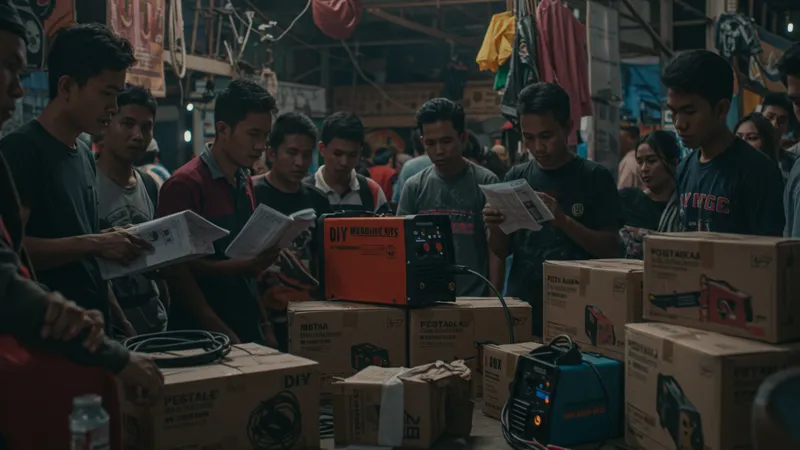
Why Are Indonesians Rushing To Buy Portable Welding Machines
Controversial Trends Making Waves
Within the bustling world of portable welding machines in Indonesia, several controversial trends are emerging, challenging conventional wisdom and stirring debate. One such trend is the rise of DIY kits, which make welding accessible to anyone with a few dollars to spare. While this democratization of technology is celebrated for empowering individuals, critics argue about safety and quality concerns. These kits offer lots of promise but also introduce risks, especially for untrained users. In a country where regulations are still catching up with rapid technological advancements, these kits raise pertinent questions about responsibility and oversight.

Additionally, there’s a contentious discussion around the export of these portable machines. Indonesia’s welding machines have attracted international interest, sparking a surge in export demands. While this is lucrative, there are fears of domestic shortages that could handicap local small businesses. Balancing between meeting international market needs and nurturing domestic potential is proving to be a complex and sensitive issue. There’s further controversy around the pricing strategies adopted by manufacturers. Can they sustain equitable prices that benefit both the local artisan and the corporate buyer? The debate intensifies as market players weigh profit against their ethical obligations.
Moreover, a surge in patent filings suggests a race to innovate or capitalize on this industrial boom. Patents play a dual role: safeguarding innovation and possibly stifling it by generating monopolies. Some industry veterans argue that a lack of open-source designs could hinder technological pace, while others insist on the importance of protecting proprietary advances. The tension between open collaboration and protected innovation could have broad implications for technological growth. As patents become a hot topic, the extent to which they influence the market can sway industry dynamics in unexpected directions. Will the tug-of-war between these philosophies create deadlock or foster progress?
Network monopolies are causing quite a stir, too. Countries may focus on fostering domestic champions or leveraging international conglomerates to drive industry forward. Despite varied approaches, Indonesia faces decisions with far-reaching consequences. Will it nurture home-grown innovations or embrace global partnerships? The future of this industry could depend on strategic alliances that defy traditional norms. As these trends unfold, they provide a lens into a complex economic and cultural scenario characterized by rapidly shifting paradigms. Could these industry debates lead to innovative policy developments? Stay tuned, as the narrative is still being crafted.